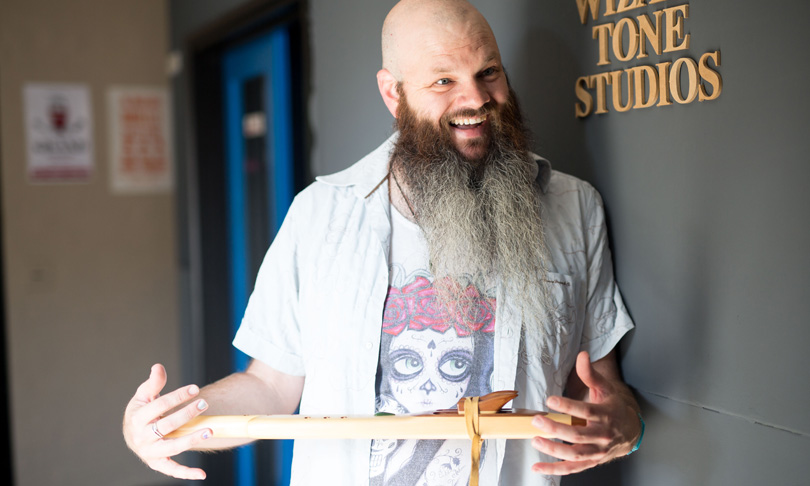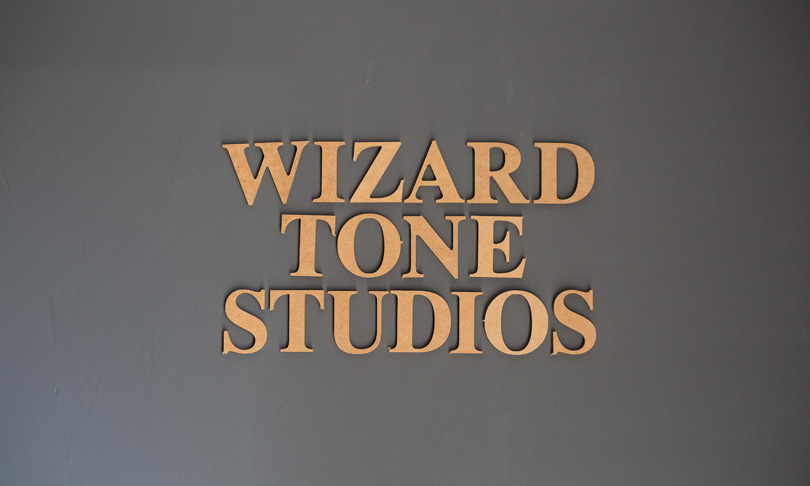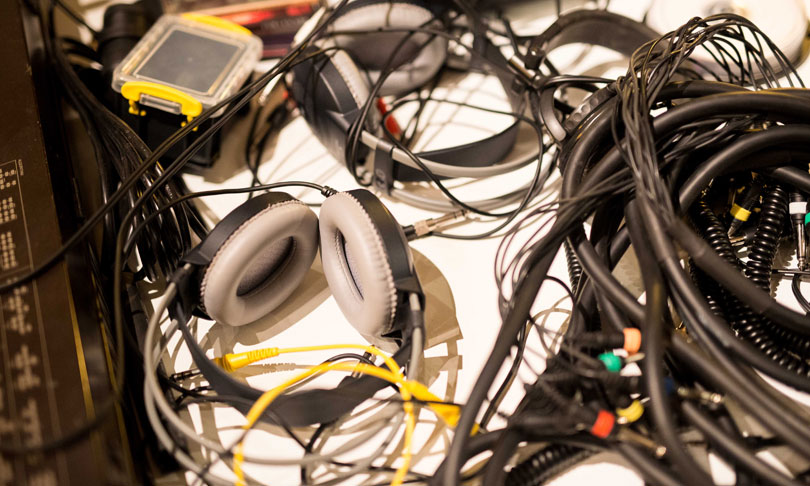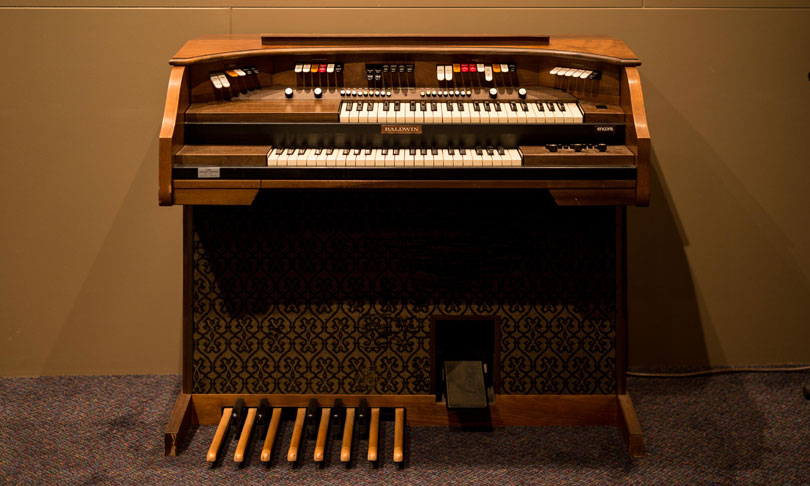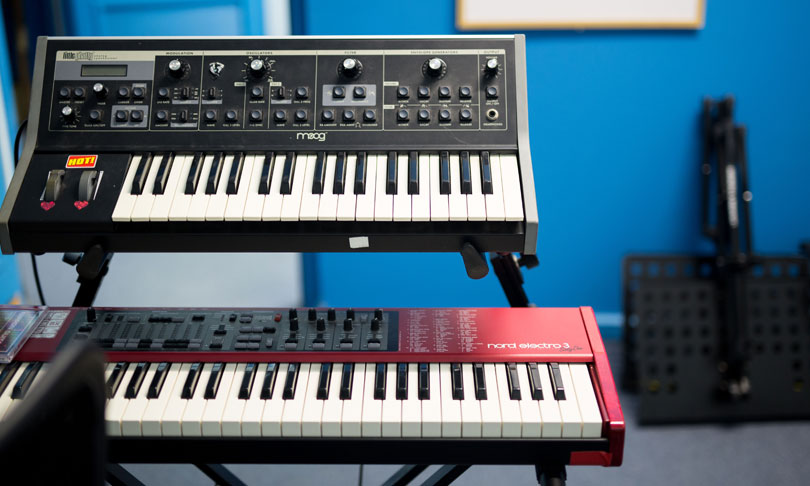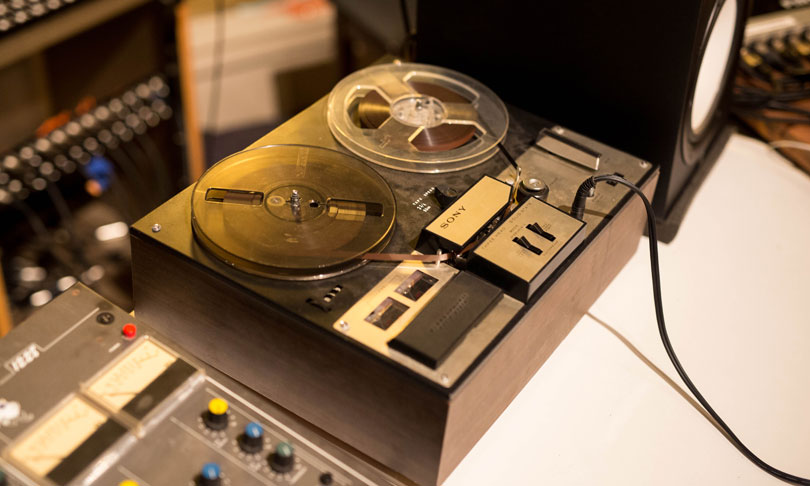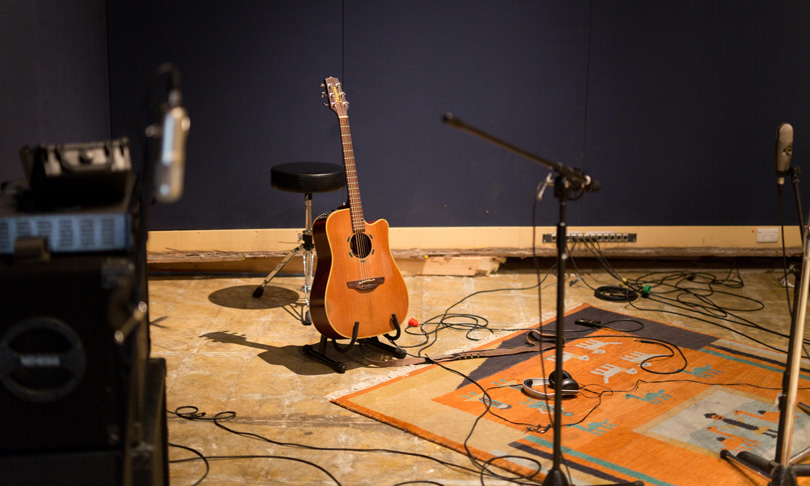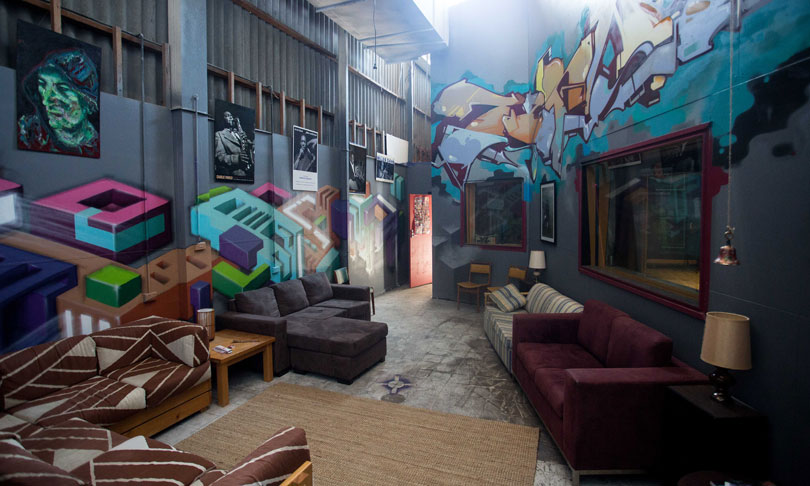In the first of a new series looking behind-the-scenes with local musicians, CityMag talks with prolific Adelaide troubadour Adam Page about his creative process, the importance of home, and what a harmony flute even is.
In the studio with Adam Page
As we tour around the recently completed Wizard Tone Studios in Hendon, it’s hard not to catch the enthusiasm of our host, Adam Page, who is familiar to Adelaide audiences for his improvised solo looping shows and myriad jazz-based ensembles.
You can see Adam play live on the second Sunday of every month at the Crown & Anchor between 5pm-7pm.
“I do a lot of composing nowadays, so this is my little composition space,” Adam explains. “This is where I kind of sit, do my writing, and so, I mean it’s a bit of a stark sort of place. These blues, they’re just not doing it for me. We’re going to paint it, make it a little bit more funky. Put some lamps up.”
Exuding the kind of excitement Charlie did when he first entered the Chocolate Factory, Adam takes us into the keyboard room.
“Yeah, this guy’s my favourite. That’s a ‘60s organ and it sounds fantastic. All these bits light up as well.”
It’s not plugged in, but the stately looking organ at the back is, and it draws Adam in. It looks like something Ray Manzarek from The Doors might’ve played. The multi-instrumentalist shows us how.
“I think it’d be sort of ‘70s at some stage, like mid-‘70s. It’s gorgeous.”
It’s every musicians dream to own their own studio, and for Adam and fellow Adelaide musos Jarrad Payne and James Brown that dream was realised four months ago.
“James and his partner Emily were moving out, and he had a nice little studio space at home, and they were wondering where he was going to set up his stuff. Emily looked up ‘sound proof recording studio Adelaide’ on Gumtree and she was like ‘what about this?’” Adam recalls.
“And I was in Sydney at the time and he called me up and goes ‘dude, I’ve found a space’ and I went ‘I’m in’, didn’t even see it. To actually stumble on a studio is unbelievable.”
For Adam, it’s as much about having a space outside of home he can dedicate to work as it is about owning a studio.
As you might expect from a guy who spends so much time on the road playing arts festivals, it hasn’t always been a problem, but while living in Wellington and working on his first symphony (commissioned by the New Zealand Symphony Orchestra), he became aware of the need to keep work and home separate.
“I’ve learnt in the last couple of years that for me, it’s so important to take my music away from home and have a space, you know? Because home is ‘home time’ and I find that if I’m at home working, I’m just so distracted,” Adam explains.
“I get a lot of energy from actually designating a space, because then when I get home it’s about cooking, it’s about conversation, it’s about listening to music, it’s about, you know, drawing a line in the sand between where the art ends and the me-time begins.”
In creating what is now Wizard Tone Records, it seems like this is a service Adam and the team would like to provide for whomever books time there.
“[The] rehearsal space is free for the first rehearsal and then you start paying after that. And it’s cheap. Studio time is really cheap, just because we want people in here, we want people making stuff and feeling comfortable, you know?”
Adam’s return to Adelaide from Wellington last year was not the happy reunion he hoped for. The time was marred by the loss of close friend, and giant of the South Australian jazz scene, Mike Stewart. But through tumultuous times he found further inspiration.
“It took a few months to get out of that swamp,” he says.
“I’ve done probably about 1500 shows I reckon, doing the solo thing, and I’d recorded five. And I’ve always loved the fact that it’s in the moment and the people that are there are the only people who’ve experienced it, and that’s the first and last time it’ll happen, but then, it stemmed from losing Mike and seeing his legacy, seeing what he left behind, which is immense, and it’s just like ‘what have I left behind?’ There’s not much, really. So that really inspired me to start recording my stuff and start getting as much stuff out there as possible, to kind of leave that legacy.”
Adam is currently in a residency at the Crown and Anchor, playing solo shows and recording them for the audience to download (for a price you can nominate, if you’re into supporting artists) when they get home.
And if you happen to catch an Adam Page solo show, chances are you’ll experience the stage staple he picked up during his time in Wellington – the harmony flute.
A Native American design, the dual chambered flute sounds like a portal into a woodland realm, and Adam assures us it’s less difficult to play than it appears.
“It’s just like a recorder, but just two recorders. And all the notes will work, it doesn’t matter what combination,” he says.
“I went to a market in Wellington and there was this guy who had a stall who had a couple of these flutes. I’d never played anything like it, I’d never heard anything like it, and at the time I couldn’t afford it and I walked away with so much regret,” he laughs.
“Then a few weeks later I was doing a show in Wellington and this guy, Todd Chaplin, was in the audience and recognised me from when he’d met me at the market and came up to me after the show and said ‘here’s my address, come up to the workshop tomorrow, I want to give you a flute.’ So I went around to the workshop and he gave me this, and basically it’s changed my life musically. I just love spending time on it.”
Later, Adam tells CityMag about some of the plans he has for Adelaide audiences, including a band called The Pacinos (a ska group playing songs Adam has written about Al Pacino), and we wonder when Adam’s musical life isn’t in a state of change.
But we guess it doesn’t matter, as long as he’s doing it in Adelaide, a sentiment he agrees with.
“I’ve found in the last three or four months that … there’s a buzz about Adelaide. I mean, I’ve always seen it, and I’ve been part of that buzz before moving to Wellington, but there’s something about it now where people’s attitudes are changing. That attitude is that it’s not just about February/March in Adelaide, it’s actually happening all the time. And so it’s our responsibility as musicians, as artists, to give those audiences stuff to be passionate about, to be excited about, you know? It’s really cool to be observing and to be a part of that.”



